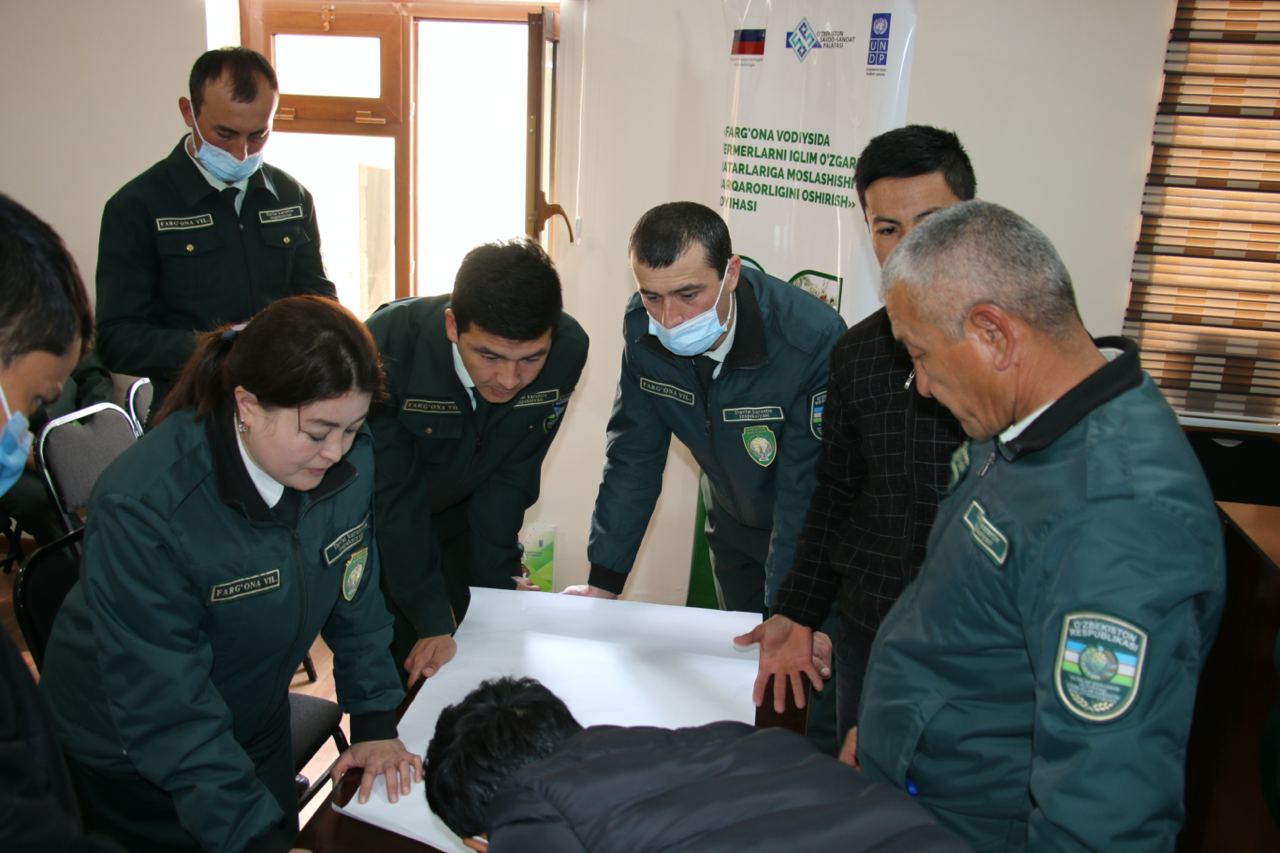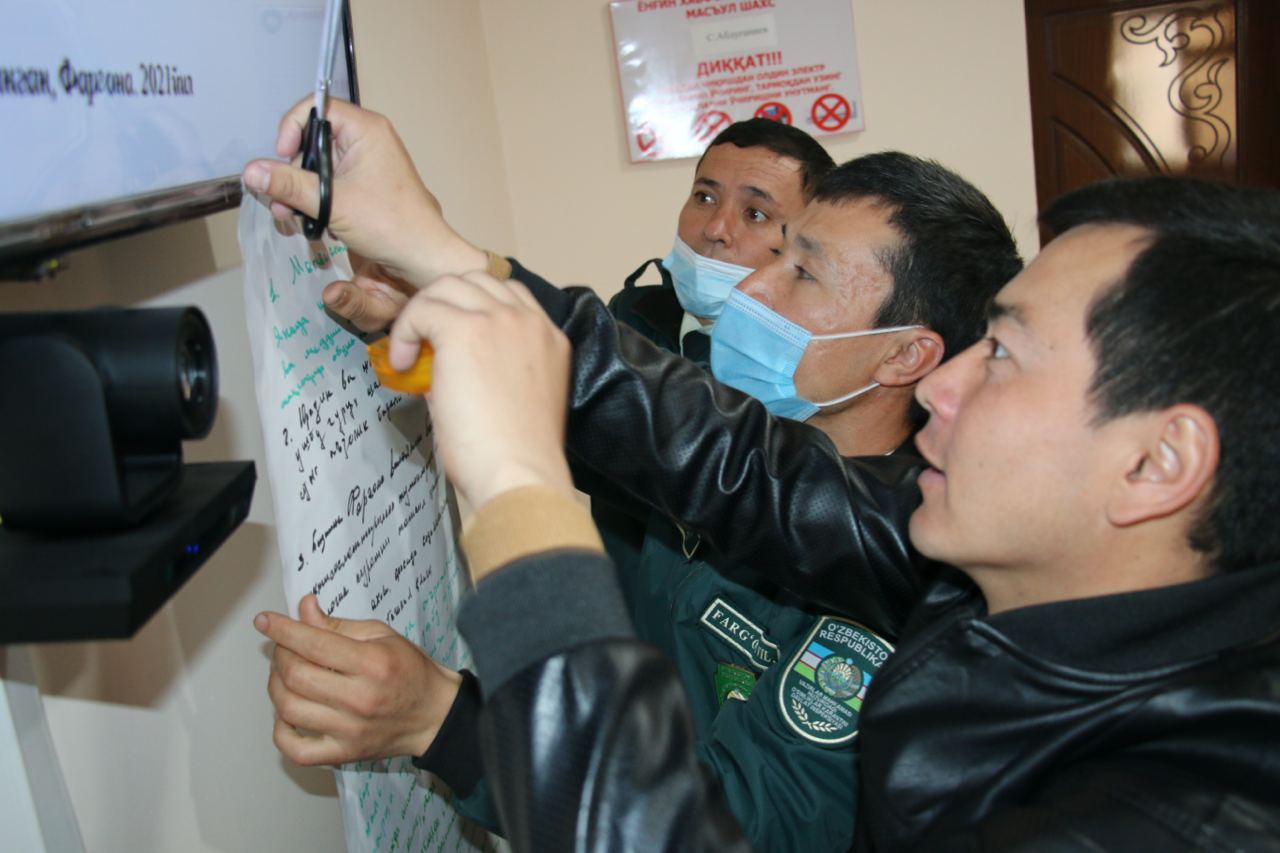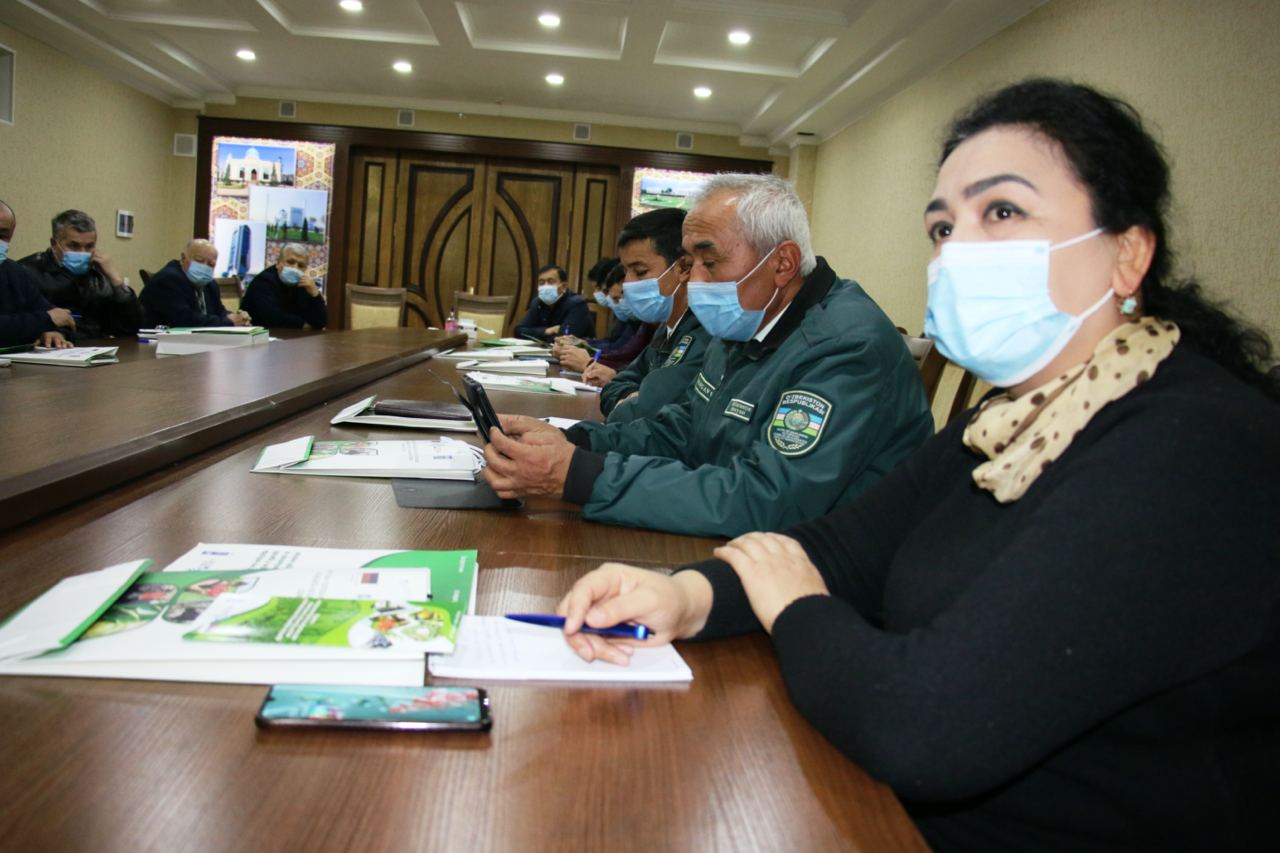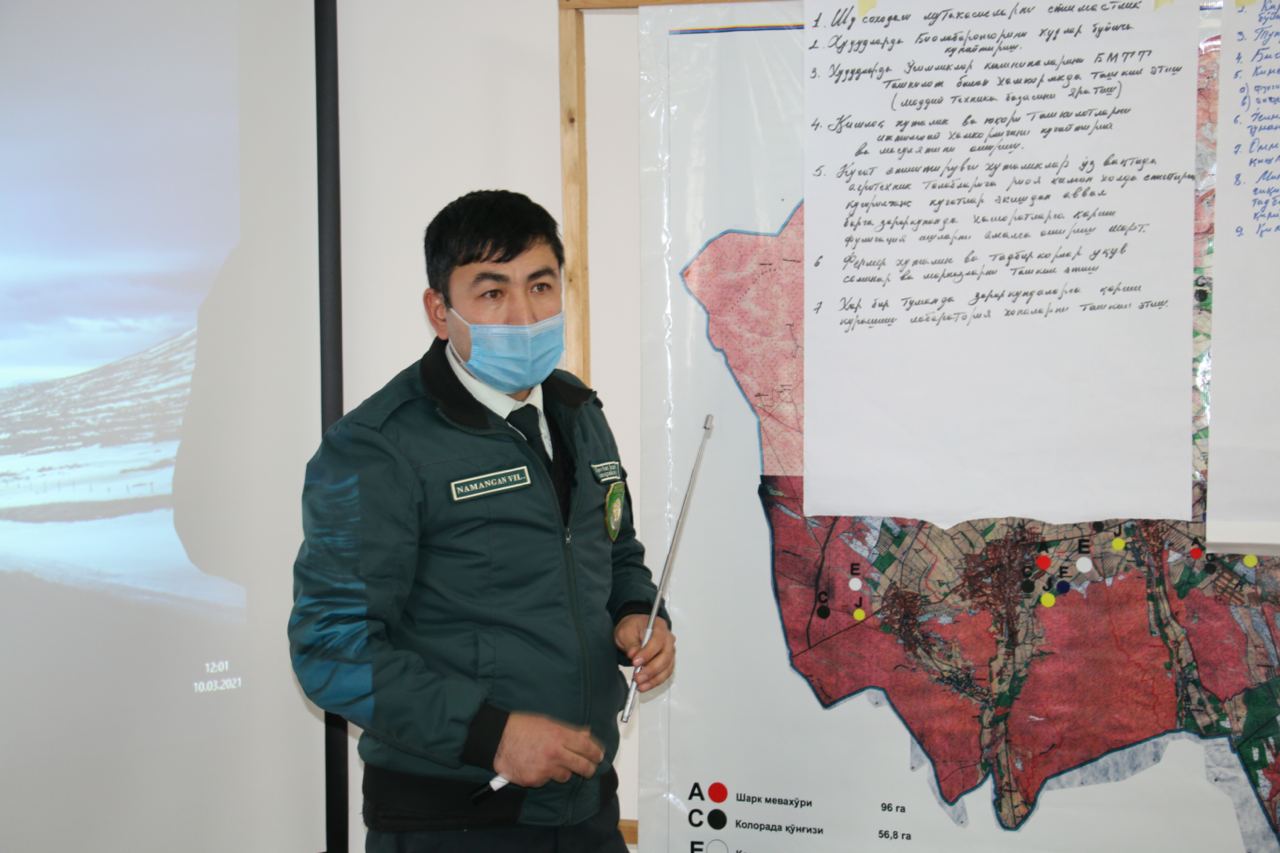Image: UNDP Uzbekistan
17 March, TASHKENT – On 10-12 March the ‘Enhancing the adaptation and strengthening the resilience of farming to Climate Change Risks in the Fergana Valley’ project of the Chamber of Commerce and Industry of Uzbekistan and UNDP, funded by the Russian Federation, held round-table meetings with representatives of the Plant Quarantine Inspectors of the Namangan, Andijan and Fergana regions. These meetings were essential opportunities to discuss the Concept of Integrated Plant Protection against Pests and Diseases, currently being formulated.
Climate change’s impacts including temperature fluctuations, reduced water resources and agricultural productivity and more-frequent natural disasters, along with the lack of farmers’ abilities to adapt to climate change and integrate new innovations, have all been essential reasons for developing this Concept.
 This essential document will serve as a basis for improving operations of plant protection systems, increasing yields, enhancing phytosanitary conditions of orchards, and achieving positive results in cultivating environmentally-safe agricultural products.
This essential document will serve as a basis for improving operations of plant protection systems, increasing yields, enhancing phytosanitary conditions of orchards, and achieving positive results in cultivating environmentally-safe agricultural products.
"I think that the developed Concept of Integrated Plant Protection will, in the future, largely predetermine our actions and facilitate the implementation of tasks assigned to us, through the application of modern knowledge, approaches and technologies," said Rasuljon Kholmirzaev, inspector of the quarantine service of the Turakurgan district. “I am sure that raising public awareness, while applying a preventive, protective approach in close cooperation with other organizations, farmers and gardeners, will bring sustainable, positive results.”
 The issues of climate change and their impacts on sustainable development in agriculture were also discussed at a training on improving skills in forming regional development programmes, held a week earlier on 1-6 March and attended by decision-makers of the agricultural sector.
The issues of climate change and their impacts on sustainable development in agriculture were also discussed at a training on improving skills in forming regional development programmes, held a week earlier on 1-6 March and attended by decision-makers of the agricultural sector.
At this earlier meeting, professors of the ‘Scientific Foundations and Problems of the Economic Development of Uzbekistan’ Scientific Research Centre, Yusufjon Dodoboev, Abdurashid Kadyrov and Abdulaziz Abduvaliev, briefed participants on main trends and areas of development of the Fergana Valley’s agro-industrial complex. They covered the specifics of applying strategic planning in developing agro-clusters, priorities and prospects for the agricultural sector’s development, the key areas of the agricultural sector’s operation within the value chain, and its adaptation to the changing climate.
 "I very much liked the presentation by Abdulaziz Abduvaliev on the Sustainable Development Goals. It provided complete information about each of the 17 goals, and the role they play in the life of the country and of humanity as a whole. It presented details on how the goals are interconnected, and what is needed to ensure food security, implement a green economic strategy, preserve ecosystems, and develop partnerships to achieve the Sustainable Development Goals,” said Shakhzoda Yuldasheva, one of the training’s participants.
"I very much liked the presentation by Abdulaziz Abduvaliev on the Sustainable Development Goals. It provided complete information about each of the 17 goals, and the role they play in the life of the country and of humanity as a whole. It presented details on how the goals are interconnected, and what is needed to ensure food security, implement a green economic strategy, preserve ecosystems, and develop partnerships to achieve the Sustainable Development Goals,” said Shakhzoda Yuldasheva, one of the training’s participants.
“When developing proposals for a regional strategy, we have realized that we can not only identify problems, but also make constructive proposals in the light of the targets of the Sustainable Development Goals, which will be taken into account and actually implemented," she added.
At both meetings the participants used the information and knowledge they received to develop proposals for inclusion into development programmes. 100 proposals for improving ongoing work in light of climate change considerations have been formed, of which the best will be applied to the Fergana Valley’s development.

 Locations
Locations

